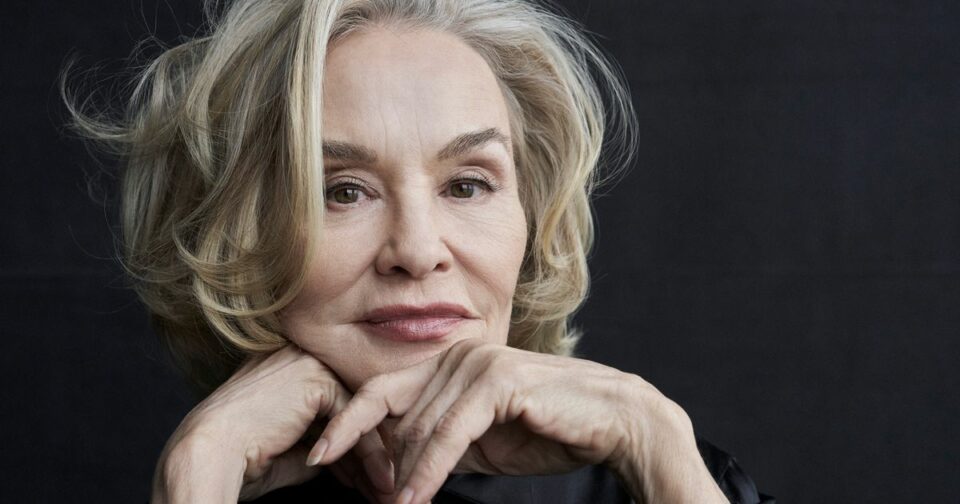Sitting in a chair next to a window in a break room at the Hayes Theater, where she’s rehearsing Mother Play, the new work by Paula Vogel (How I Learned to Drive), Jessica Lange has a regal presence and a storybook narrator’s voice. There’s a subdued gravitas to the way she tells her own tale: She was a hippie intellectual from rural Minnesota who went off to Paris and New York to study mime and dance and figure herself out. Despite having no money, no industry connections, and almost no formal training as an actress, she landed the lead role of Dwan in the 1976 King Kong, played her as a daffy sexpot, made the cover of Time, and got pilloried by critics. She has since won two Oscars, three Emmys, five Golden Globes, and a Tony and published four books of her photographs. She has played Frances Farmer, Patsy Cline, Edith Bouvier Beale, Blanche DuBois, and Tamora, Queen of the Goths, as well as a gallery of scary oddballs in Ryan Murphy’s series American Horror Story. Her romantic life is defined by relationships with artists of comparable stature: Mikhail Baryshnikov and Sam Shepard. She’s still brutal on herself and her work, delivering the sorts of scathing assessments you would expect to hear from the many fearsome women she has embodied over the past half-century. She also keeps challenging herself, even though, at 74, she has nothing to prove.
I love your most recent collection of photojournalism, Dérive. The images find beauty in people who have been pushed to the edge, which is something you do in your acting as well.
Oh, well, thank you. I mean, that’s just a slight little book. I’ve done others. It gave me something to do during the lockdown, to just meander. Sometimes I’d walk ten or more miles a day. I walked sometimes all day long.
Do you shoot on film or digitally?
Oh no. Film.
Do you develop them yourself?
Not anymore. I used to, but I don’t have a darkroom here in the city. Photography has been a big part of my life for 20 or 25 years, ever since I got a serious camera and started taking it with me wherever I went. It’s the perfect balance for acting because photography is so anonymous and so private. You’re not depending or relying or anything on anybody else. It shares with acting that quality of being present, in the old Strasberg lingo. If you’re not present, you’re not catching that moment. The disciplines kind of inform each other. Dérive was a record of exceptional times. You know what the streets of New York were like during COVID. Everything had emptied out. There was a spirit on the street — something very unique. People were actually paying attention to each other, and nobody was in a rush. Nobody was racing down the street or on their cell phone.
I wonder what it was like when you first came to New York just before the ’70s.
Yeah! That energy in New York at that time was like nothing I had ever felt anywhere else in the world. Paris had a completely different feel. It didn’t have that kind of kinetic energy that New York had. But I’ve never been happier in my life than those years I was living in Paris between 1971 and 1974.
What was so great about it?
Politically, I was out of the States. It was the height of the Vietnam War: Nixon, Kissinger, all of that. It was almost as if you could exhale. There’s a similar feeling now here that things are going really awry. You start thinking about, Well, where would I go? I was in my early 20s when I arrived in Paris, and the city was just so thrilling and so beautiful. And I was studying mime with Étienne Decroux, an old master who was still teaching in Paris even though he was close to 80 years old.
Decroux was a corporeal mime. What does that mean?
Well, he wasn’t a Marcel Marceau kind of mime. None of this stuff [she raises flat palms and does “I am trapped in a box” gestures]. It was much more abstract. We would work on movements all during the week and then we’d have an evening at the end of the week that was improv and he would give you situations. For instance, one, which is really obscure, was “a scientific research center at lunchtime.” I adored him, and he set me on a whole path of thinking about performance. Although he discouraged performance — I mean, people who got jobs in little theaters or street circuses — he didn’t believe you were ready to perform publicly until you had amassed a huge body of knowledge.
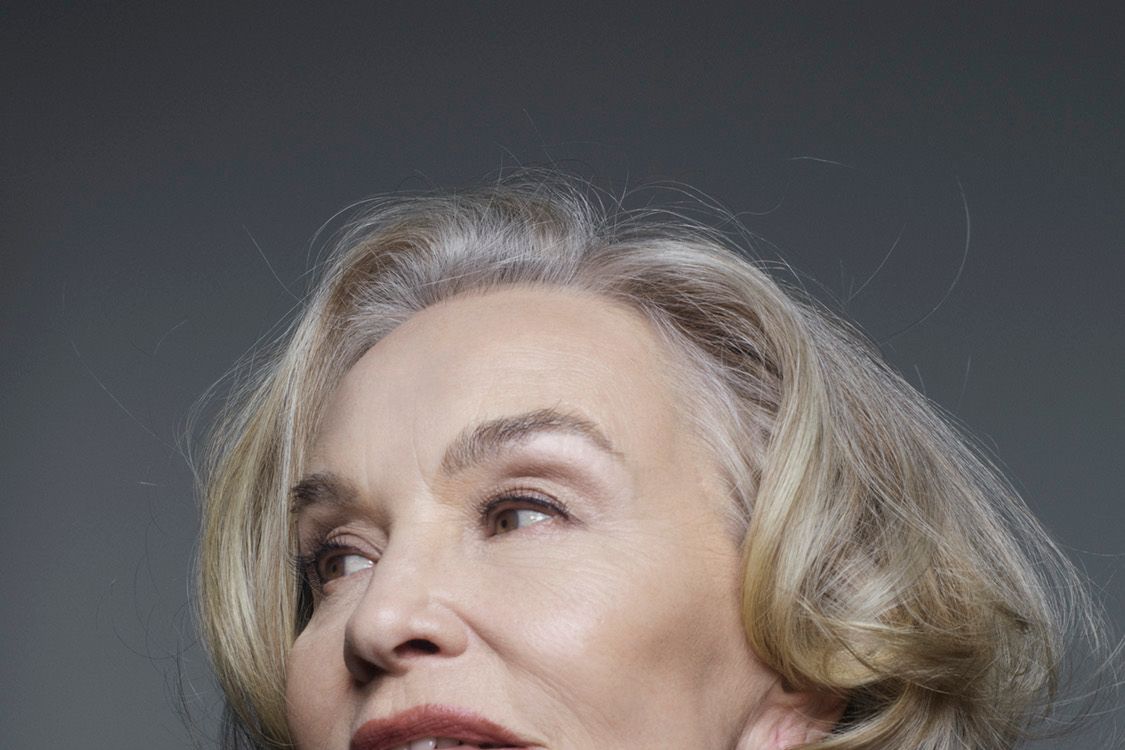
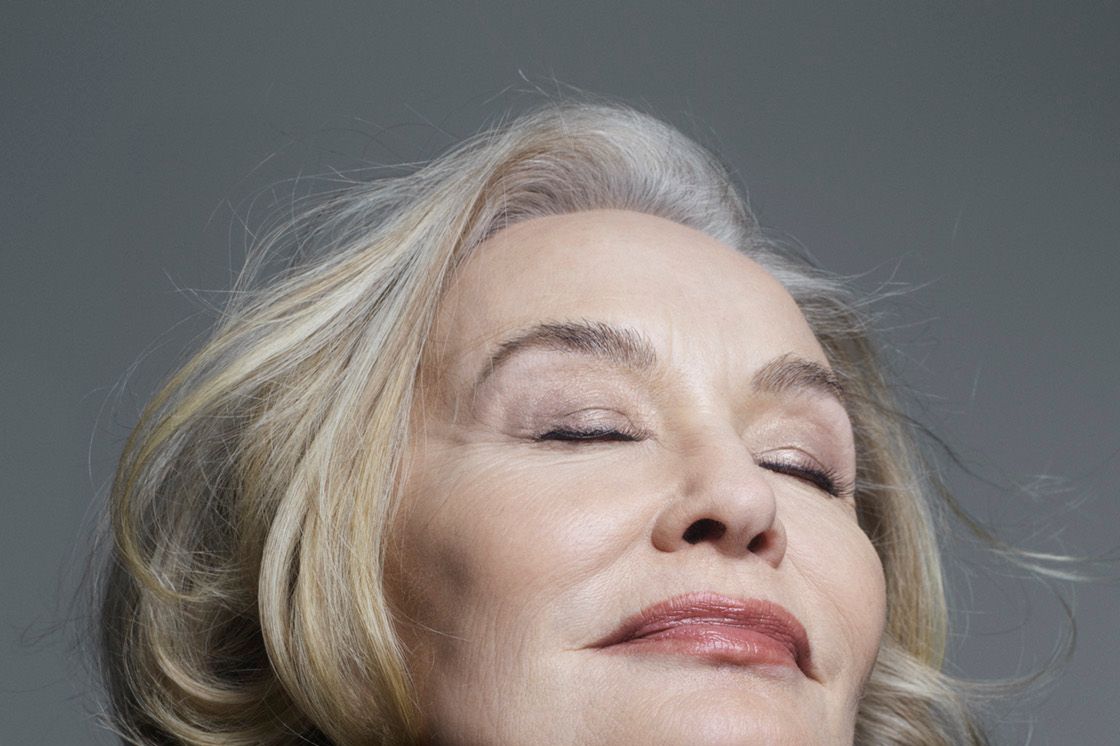
One of the common threads in your performances is an intense physicality that verges on dance or mime. There’s something almost primordial about the way you approach roles.
That could be because I never studied formally. I mean, I didn’t go to drama school. I didn’t major in theater. My training really was coming up out of underground theater companies in New York in the early ’70s, then studying mime with Étienne. When I finally left Paris, for personal reasons, I got back to New York and I thought, Well, now what? Now what am I going to do? I mean, I have no skills. I’m not trained. There’s no future for a mime. It’s nuts. You’re not getting booked into venues anywhere. I was working as a waitress at the Lion’s Head, and somebody said, “You should take an acting class.” And I thought, Oh, acting. Oh, well, that would be the next step. I found some classes down in the village at the Herbert Berghof Studio and signed up, and that was kind of it.
You were doing some modeling at the time, too, right?
I was trying to. I was never really successful at it. I might’ve had one or two paying jobs. People told me, “You should try to model.” I thought, Well, that’d be great, wouldn’t it?, to supplement my waitress job. But nothing ever really panned out. So when people say I was a model turned actress, I think, No, that’s not the case!
Soon after, you were cast as Dwan in Dino De Laurentiis’s 1976 remake of King Kong. It’s incredible to me that this was your first film role. You truly were unknown — a person outside of the film world.
So completely outside! And they were not interested in me at all. See, this is where the modeling thing paid off, even though I’d never really worked as a model. The De Laurentiis company contacted an agency in New York and said, “Do you have any girls that you would send out for an audition?” And somebody said, “Oh, well, I know these couple girls who are taking acting classes, maybe.” So I got a call out of the blue saying, “Do you want to go to Hollywood and audition for a movie?” I thought, Wow, that’s a tough question. Do I want to do that, or do I want to stay at Sheridan Square and pick up another couple nights as a waitress? So I said, “Yeah, I’ll go out there,” because my sister was living on a sailboat down around Long Beach and I was broke, completely broke, and they were going to pay my way out. So I ended up going out there to do this audition, and they took one look at me and weren’t at all interested. I was not the type they were looking for. I had just come back from Paris. I was skin and bones, so skinny, and I had this kind of strange afro; it was my Marlene Dietrich Blonde Venus period, no eyebrows. They were just going to send me home. But then I guess they called the agency and she said, “Well, you’ve flown her out there. Just put her on film. Take a look at it.” And that was that.
What are your memories of that shoot?
I remember Chuck Grodin saying to me while we were making it, “You have to understand, movies aren’t all like this.” But I didn’t know any better. It went on for nine months. Sometimes we’d shut down for weeks at a time. I was wandering around not knowing what to do. I spent most of the time in that hydraulic hand. I’d been taking acting classes in New York for maybe a year at that point. I met all these young actors who were trying to get showcased, where agents or managers come and look at an evening of work, and I thought, Oh, so this is how you do it. You start sub-basement, and you hopefully maybe get a small regional-theater thing or an Off Off–Broadway show, and then you work your way up. But my trajectory was just insane.
You didn’t book another role until you played the angel of death in All That Jazz three years later, which is mystifying to me.
Nobody took me seriously. They still don’t take me seriously.
Maybe slightly more seriously?
Well, maybe a little bit more. But Bob Fosse only cast me because I knew him and he was a dear friend and created this part because a few people after seeing King Kong felt like maybe there was something there.
Pauline Kael did! She even compared you to Carol Lombard.
Yes, she did. I remember that. I really appreciated that. But nothing happened. Nobody was interested.
The next big one was The Postman Always Rings Twice.
That was huge because the editor of Postman, Graeme Clifford, then directed Frances.
Your first Oscar nomination as Best Actress. When did you first encounter the life and work of Frances Farmer?
I was taking acting classes here with a teacher called Warren Robertson. It was a scene-study class. And he said to me at one point, “Look at this book about Frances Farmer, Will There Really Be a Morning?, and see if you can pull a scene out of it.” And so I did. That was the first time I’d heard of Frances Farmer or knew her story, the whole tragedy of it.
What spoke to you?
I think a lot of it was her tremendous strength, her incredible rebelliousness, and the idea that somebody who was as beautiful and as talented and brilliant as she was could have fallen into a situation where everything was ripped away from her. And somehow she managed to survive, even in a diminished state. I just thought, Wow, this is extraordinary.
As painful as it must have been to act in those scenes, at least you got to be onscreen with Kim Stanley, your hero, who played Frances’s mother.
Oh yes!
Your face lights up when I say her name!
I loved Kim. I absolutely loved her. To my mind, there’s nobody better than Kim Stanley, never has been. It used to be that every time I’d get ready to start a film, I would watch her performance in The Goddess just to remind myself of what great acting is. She was fearless. It was almost like a form of madness. It was raw, and you just always got the sense that she was teetering on the edge.
When you went to the movies as a child, who else were you excited to see?
I loved all the old movie stars. Bette Davis and Joan Crawford. Geraldine Page. Vivien Leigh. There was kind of a febrile quality to Vivien Leigh, and it was fascinating. Those were the actors who thrilled me as a little girl watching black-and-white movies on the TV with my mother up in some backwoods town in northern Minnesota.
Were you apprehensive about being on Broadway for the first time in 1992, when you did A Streetcar Named Desire with Alec Baldwin as Stanley?
Oh, I should have been. I should have thought about this a lot instead of saying “yes” to Blanche DuBois. I mean, I really opened myself up to being crucified. I know I should never say this, but I didn’t have the kind of director I needed for my first time onstage in a big Broadway theater in something like that. I needed a lot of help, even in terms of understanding what it means to project beyond the footlights.
What do you get from stage acting that you can’t get from movies?
The main thing for me is that moment when you step onstage and it’s like you’ve boarded a train and it’s going to go, no matter what. There are no stops. I just wish I had been better prepared for the experience of playing Blanche. I knew I could play her, but when I signed up, there was a lot I didn’t understand about theater at the time. I pretty much drove myself mad because there was no separation. Blanche was there all the time.
“There,” meaning inside your head?
Yeah, through the whole thing, long after the run ended.
Some actors play parts like that and say “I’m done!” and go home and forget about it. But others can’t shake the character, and it adversely affects their mental health. Where do you fall on the continuum?
In the beginning, with characters like Frances or Blanche, they get inside you, and they’re kind of living inside you. You’re haunted in a way. As time goes by, it gets easier to walk away from something when it’s over. But some characters just stay with you. You may find yourself returning to them. I played Blanche three different times: First was on Broadway, then we did a film of it, and then I did it in London. The same thing has happened with Mary Tyrone in Long Day’s Journey Into Night. I played her in London, I played her on Broadway, and then we filmed it. I don’t know how many other times I can play these characters! I don’t know what other medium is available to me.
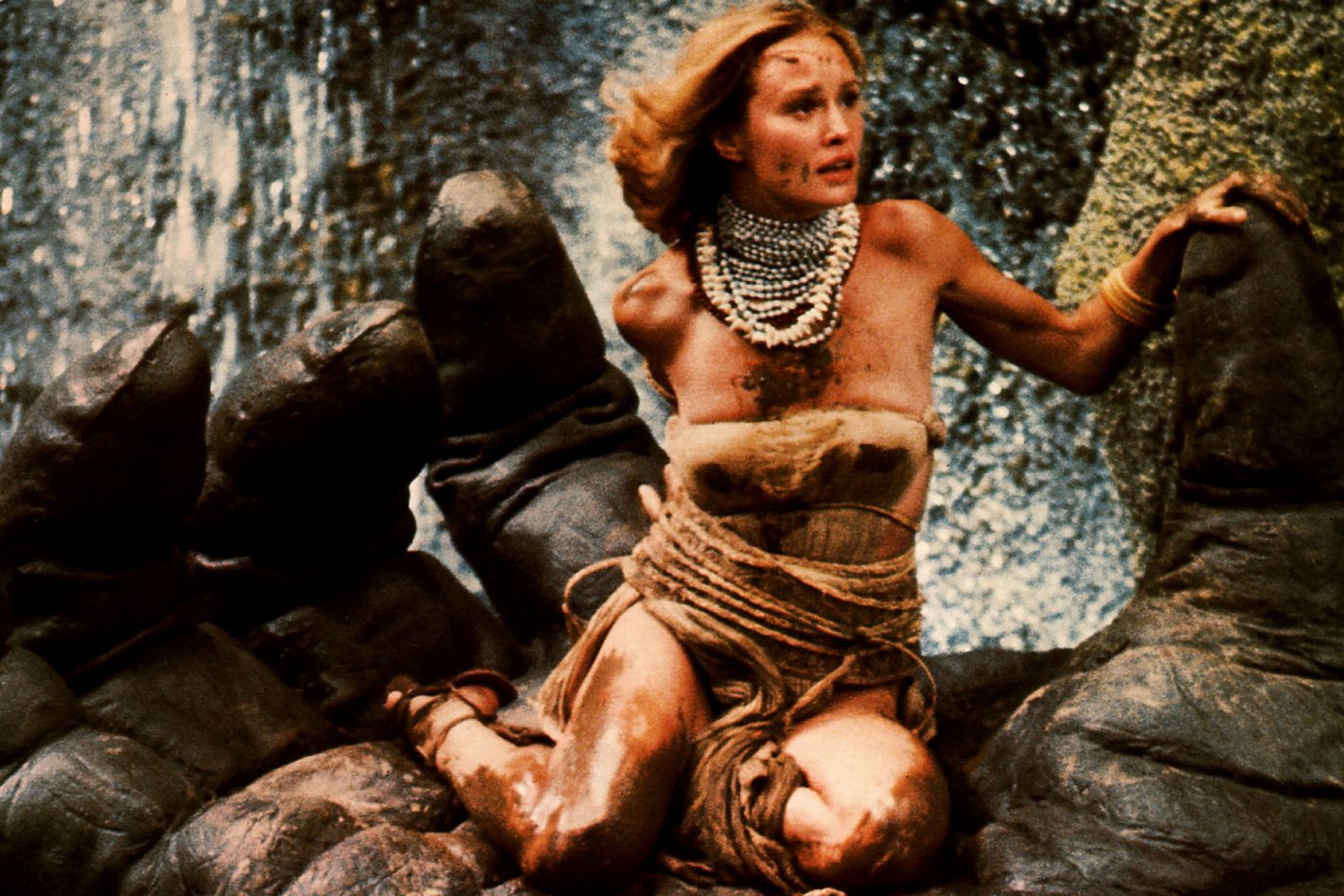
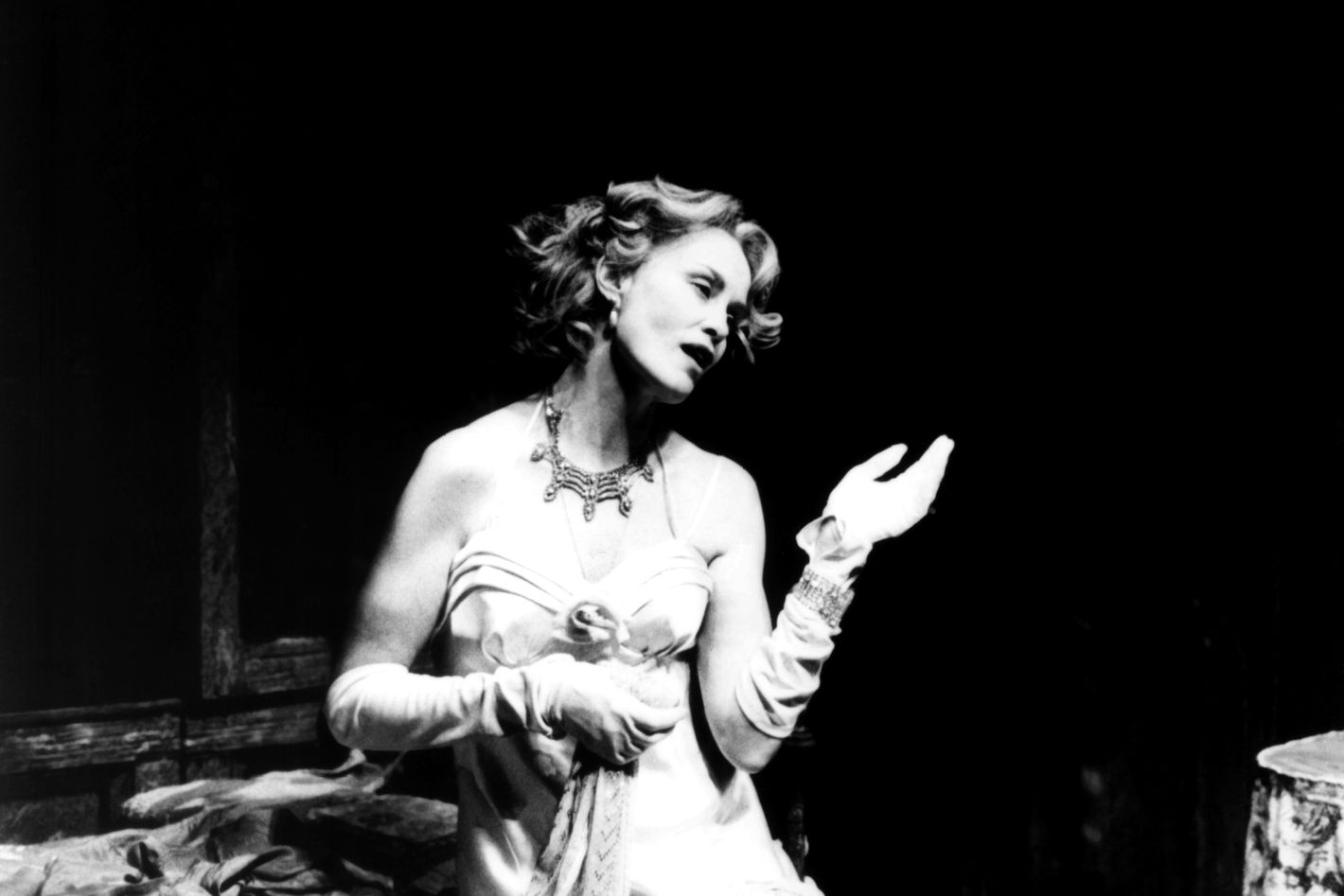
Tell me about Mother Play, which is built around a series of five evictions and also stars Jim Parsons and Celia Keenan-Bolger as your kids.
Part of the reason I immediately agreed to do this play, besides being knocked out by it, was the idea of doing a new play. Nobody had ever presented me with that possibility before — to actually create the character. That whole process is fascinating because we’re still making adjustments, which of course you don’t do with Eugene O’Neill! It’s a moveable feast. Also, the idea of playing a character who ages from her 30s to 80 was incredibly interesting because it’s not the same as doing something on film where they put on makeup. When I did the older version of Edith Beale in HBO’s Grey Gardens in 2009, I spent four hours in the morning with people pasting on all these prosthetics to make me look like I was 78 years old or something. How do you bring a character from 30 to 80 onstage? With the spirit or the energy level? And externally, with the voice, the body language?
How do you play somebody in their 30s? Talk faster?
I think there would be a completely different energy to it, and maybe you’d even [she raises the pitch of her voice to make it girlish] move it into a head voice, rather than [throatily, scratchily] drop it way down from years of sorrow.
Are they going to do anything with lighting or sound to convey the passage of time?
Without giving too much away, yeah, there will be cinematic properties to it.
A lot of actors of your generation have been in these big film franchises by now, from Star Wars to Marvel and DC to The Fast and the Furious. You’ve never done that, as far as I know.
Nobody’s ever asked.
Really?
Never.
If they asked, what would you say?
I would say “no.” I wouldn’t know what to do with parts like that!
Would you say you have been selective in what you chose to act in?
I wish I’d been more selective. The only regrets I have are having said “yes” to things when I should have known better. But you talk yourself into it because you haven’t worked in two years or something. Or you think, I can do something with this. I can make something of this part. And then down the line, you think, I shouldn’t have bothered; it was a waste of time. When I look back, I’ve done, what, maybe 35 films? There are probably only a third of those that I feel really great about.
Which films are in the other two-thirds?
Oh, I don’t want to get into them.
Were some periods more creatively fulfilling than others?
Without a doubt. I mean, the first third I would say was thrilling. And then I hit a really dry patch for the middle third. If I think of my work, my so-called career, it’s three acts. The second act was almost across-the-board disappointing.
And it wasn’t just the people I worked with that were disappointing. It was also me. I was distracted. I had children growing up, a family at home, a lot of … I can’t blame anybody but me, really. A great deal of my distraction was the regret that I’d be sitting in a trailer somewhere in Bumfuck, America, rather than being with my children. And that tortured me. It made me incredibly unhappy. I think that was reflected a lot in my work. I’d be on a set and all I could think about was, I wish I were home.
It felt to me like I’d come to the end of something. I was too disheartened. The work and the roles and the films were not interesting to me anymore. I was disenchanted with all of it except for occasionally doing a stage play.
You’re talking about the mid-’90s through the aughts, basically, with some exceptions?
More or less. The work during that time was largely forgettable. It was a disappointment.
Were you happy with the Scorsese remake of Cape Fear from 1991?
Yeah, of course. I was happy working with Marty and Bobby De Niro and Nick Nolte. It was well written. I would put that up at the top of the list from that period. I should have probably just laid low and quit working for a while. Everything turned around when I did Grey Gardens. Suddenly, it all came to life for me again.
How much of this drought you’re describing could have been attributable to being a woman over 40?
I’m sure that had a lot to do with it. It still is, I think, a dilemma for women in this business.
For what it’s worth, when I saw you in Grey Gardens, I thought, Fantastic, she’s about to head into her Helen Mirren phase.
Hah! Well, we’re about the same age, so I don’t know about that. It’s like saying I was about to move into my Maggie Smith period!
Sorry! I meant more in terms of how, at a certain point, she became an institution and was treated with respect and got to play big roles in good stuff.
Oh! Well, you know, those English dames, they can always play one of the queens! They have a lifelong career ahead of them! We don’t have a monarchy here, thank Christ, so we can’t make a late career of playing all the old queens.
What makes you want to say “yes” to a project?
It’s always been kind of an immediate emotional reaction to the part. Often in the reading of the script, I would come to a moment where I could actually imagine playing that.
What was the scene that made you say “yes” to Julie Taymor’s film Titus, adapted from Shakespeare’s Titus Andronicus?
The scene where she pleads for her son’s life. I thought, Okay, I understand that.
What was that scene in All That Jazz? That’s a pretty abstract part.
That was very abstract. But Bobby wrote that part for me, so there was never any question that I would do it.
How about A Thousand Acres, the King Lear modernization, opposite Michelle Pfeiffer, Jennifer Jason Leigh, and Jason Robards?
There, I fell in love with the book it was based on. I had a production company then, and we optioned it along with Michelle’s company. The problem with that one was we didn’t have the right director. I don’t want to say who! But that was a case where it should have been a much better film.
What was the first project on which you took charge behind the scenes?
It was Country. That came from an idea that I had. Times were so different then; you could actually go to a studio and say, “I’ve got this idea.” The idea had come from seeing a photo on the front page of theL.A. Times of a farm auction in Iowa and the dynamic of that photo: The farm wife was enraged and screaming, trying to disrupt an auction, and the husband, the farmer, was absolutely poleaxed — a term my father used to use. And I thought, Oh, there’s the story. Here you have a farm that’s been in the family for more than 100 years. It’s what they call a century farm. Suddenly, they’re being squeezed out by corporations, by agribusiness. The very personal dynamics of that kind of loss: How does it register within the family? Where does the rage come from? The absolute devastation? That film actually accomplished what I had wanted, which was exposing this phenomenon. When we went out to Iowa to do the research, there was a group of kids from New York who had come out from an organization called PrairieFire Rural Action who were trying to put farmers in touch with the means to hold on to their land, to their farms, to their lives. That was the first film I really felt committed to.
I’ve really enjoyed this recent phase of your career, in which you jump between playing very respectable roles and ones that aren’t respectable at all.
I agree. It feels like a great time. In this third act, it’s all very interesting to me again.
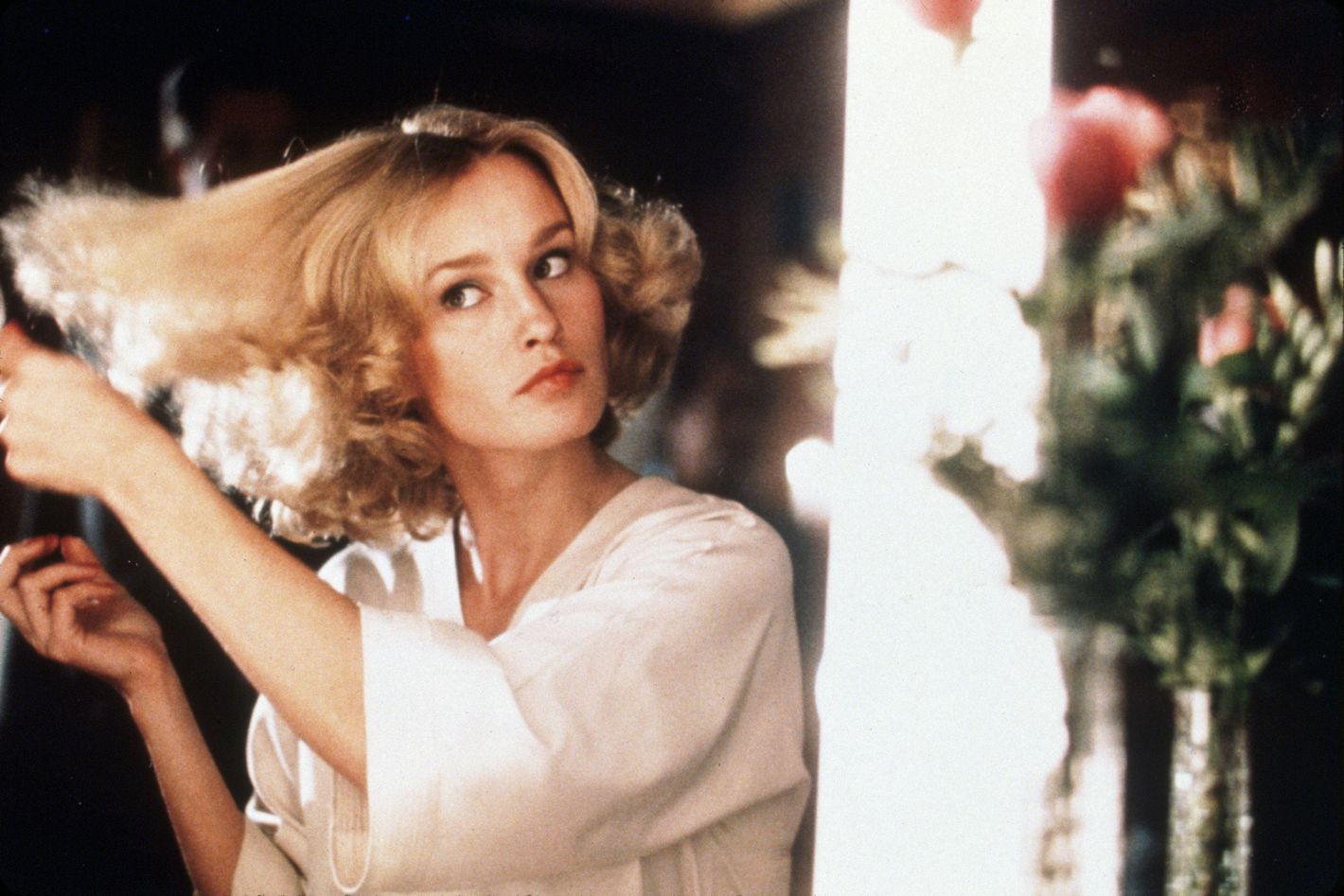
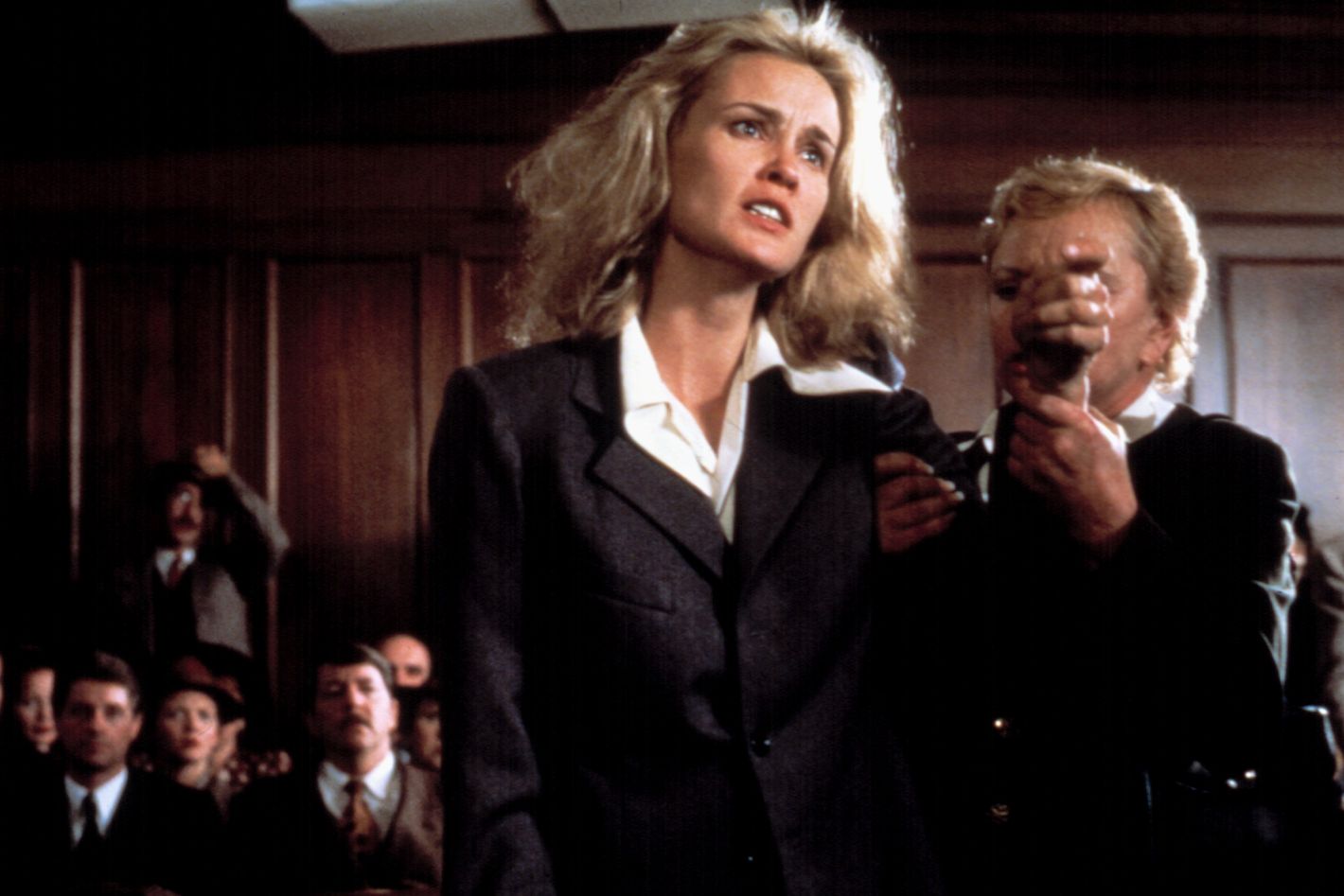
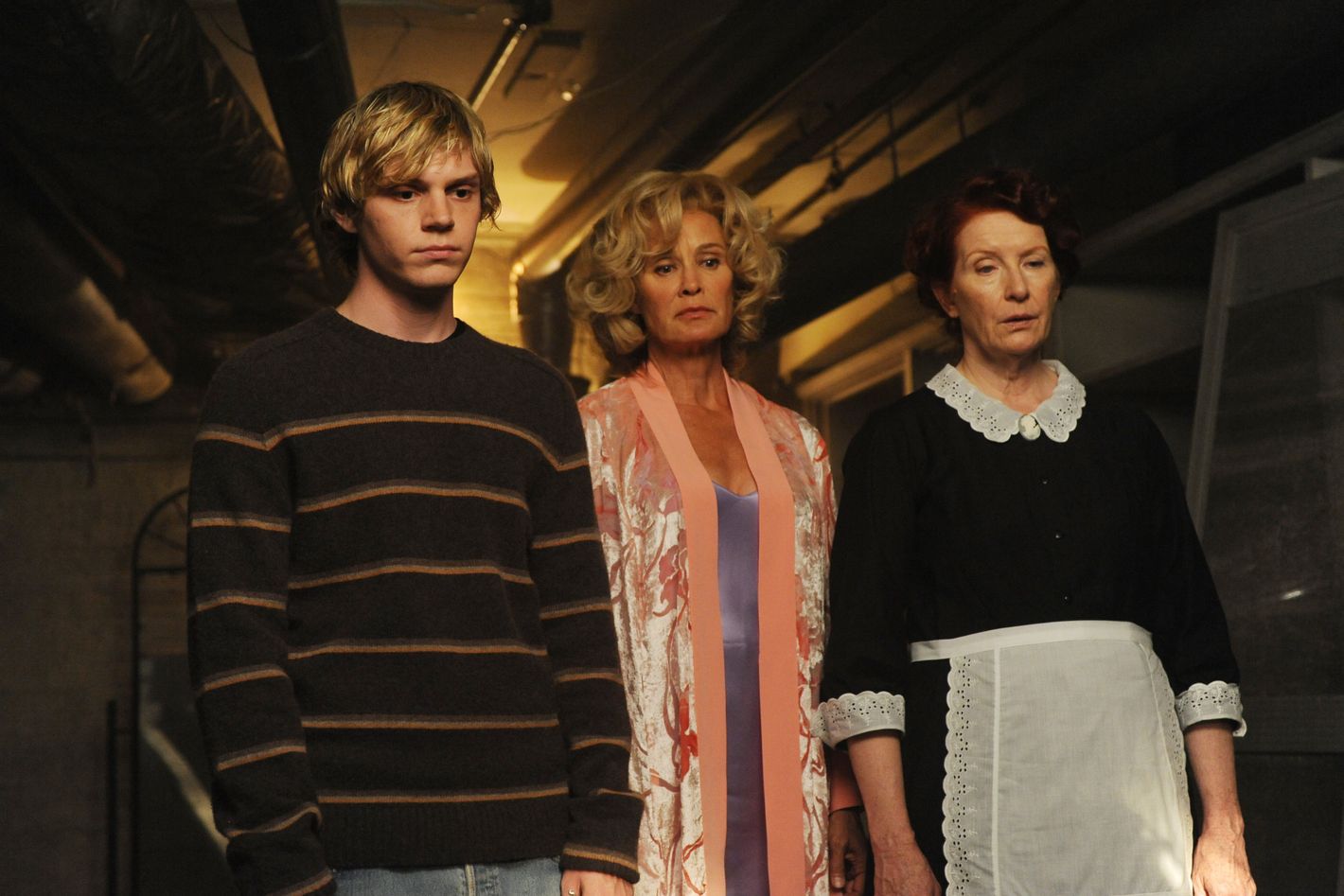
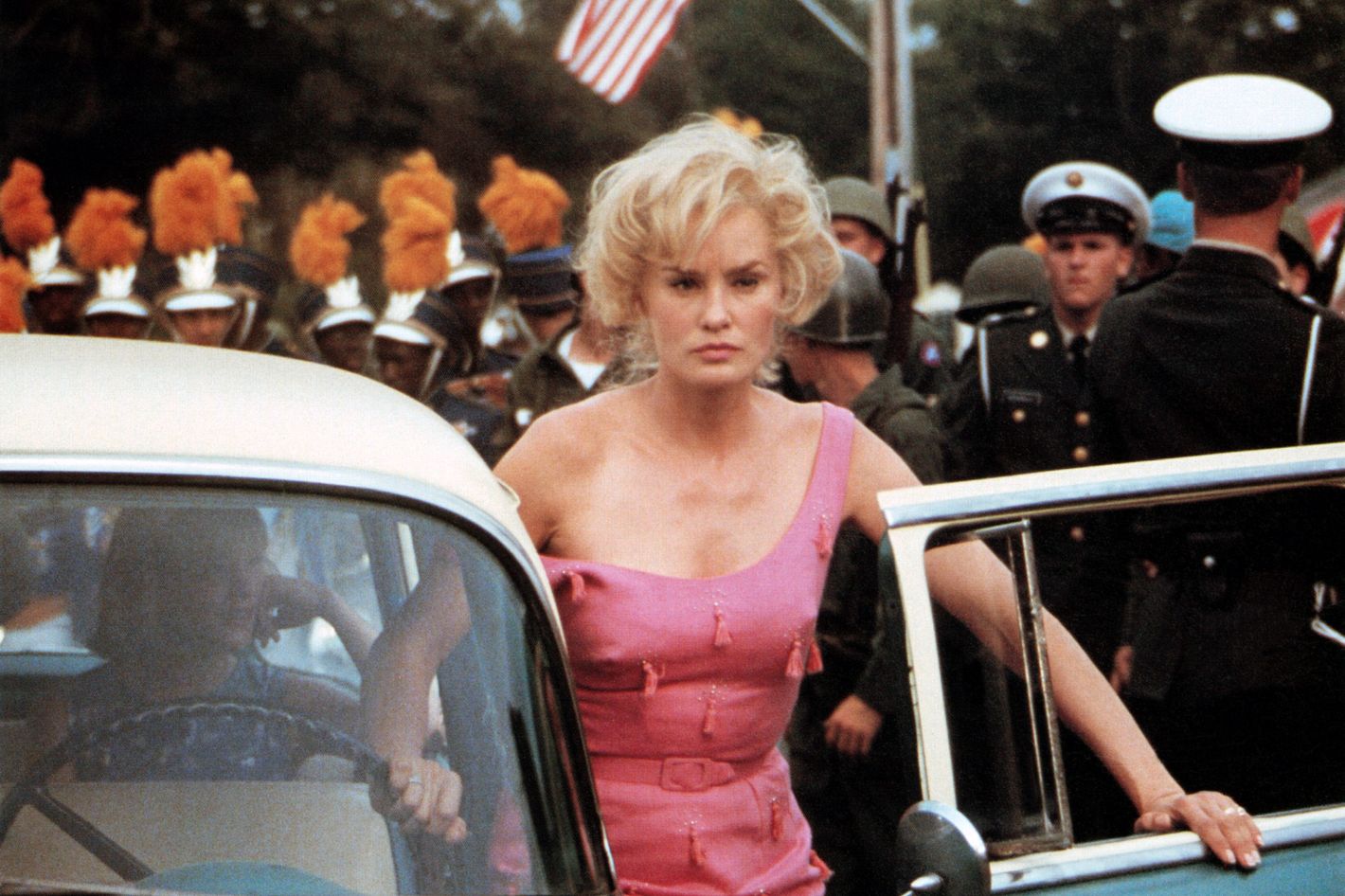
Especially in American Horror Story: Murder House, the anthology’s first season, where you go full Bette Davis. There’s even an episode that opens with you carrying a ham into a dining room and exclaiming, “Ladies and gentlemen: the ham!”
The first couple seasons were fun because they were so out there and the characters were so baroque, and they’d say to me, “What should we do?,” and I’d say, “I don’t know. Write me some monologues.” And they would write these wonderful monologues, as outrageous as could be. Those characters were overwritten and fun to play. And each one’s so different. The great thing about this premise was every season was a different story. I don’t know how, if you were in a long-running series, you would keep one of those characters going for seven or ten seasons.
It was brilliant how they didn’t tell anyone it was an anthology at first. I got to the end of season one and they’d killed everybody off and I was thinking, How can they possibly renew this?
Right! How’s this going to work? I knew they were miniseries from the beginning because otherwise I don’t think I would’ve signed up!
Were there any moments when you put your foot down and said “no” to something?
Yeah. A couple of times I’ve said in that series, “I’m not doing that.”
What was the hesitation? Was it violence or cruelty or something?
I think it was probably both. I don’t want to be involved, if I can help it, in perpetuating any violence in the world.
In run time, American Horror Story is equivalent to doing six feature films a year. How did you justify it to yourself?
It was a brand-new project, and Ryan is incredibly persuasive. When he called me out of the blue in early 2011 to ask me if I would do this, I was at my farmhouse in upstate New York, bored out of my mind, and it sounded like a great idea. But it was only for that first year that I agreed to do it. Then they came back to me and said, “Would you do another couple years?” The thing that’s seductive about doing something like that is they’re writing specifically for you. They know your voice, in a way, and they know what you like to play. And that first season, I enjoyed it. I was in Los Angeles, and I wasn’t working that much because it was a supporting character. So I thought, Well, why not do a couple more seasons? I ended up doing four altogether. Then at some point after the fourth season, I thought, I’m done. My contract was over, and I didn’t want to do it anymore.
Then he pulled you back in with Feud, opposite your friend Susan Sarandon.
Yes, which was completely different from American Horror Story. Between the writing on it and the exploration of those two characters and the opportunity of working with Susan, I didn’t think twice about that. “Yes, of course. I’d love to play Joan Crawford.” She was a fascinating character: her history, her perseverance, her toughness.
Does a TV series satisfy you in the way a really good film used to?
I remember sitting on a film set waiting for hours for the cinematographer to get the lighting right, and it was worth it because the result was spectacular. But that’s changed. Cameramen don’t light anymore; they’re shooting on digital. You’re not going to watch dailies. It’s a different ball game. I’m just happy I had the opportunity when I was starting out to actually have those experiences with filmmakers like Sydney Pollack and Costa-Gavras. I have to kind of kick myself every time I think, Oh God, it’s not as good as it used to be. Because it’s like the Buddhists say — there are two certainties in life: change and death. You can’t go backward.
Here’s another thing: Before the video village, where the director is sitting in a little separate room looking at monitors, there was a kind of synergy between the actors and the filmmakers. The director would stand next to the camera, and there was almost an alchemy, this transformation of energy between the director and you in front of the camera while you were playing the scene. Tony Richardson used to have a little aisle of space, and with his great, tall, gangly body, he would pace in it, like a stork almost, back-and-forth as the scene was being played, watching it. And you got this sense that the director was there with you in every moment — almost as if he were willing your performance. It was a beautiful way to work.
From an actor’s point of view, how would you describe a bad directing experience, as opposed to a good one?
I don’t want to be told what to do. I want to be given the opportunity for discovery. But you also want some guidance. Bob Rafelson could move things in a direction that he wanted without saying, “Do this, do that.” Sometimes, they’d just say one or two things, and it was as if a light went on and you understood what they were looking for. I remember Karel Reisz talking to me about playing Patsy Cline. He said, “It’s like a Champagne bottle exploding: the cork blowing off, Champagne spraying.” I thought, Oh, okay. I understand that.
When are you going to direct something? Between your acting and your photography, it seems like a natural step.
I don’t know. There was a period of time when I thought I would love to try to direct, but that may have passed.
I don’t know about that! Ellen Burstyn told me she’s working on her directorial debut. She’s 91.
Oh my God. That’s great. Good for her. There’s another actress I admire tremendously.
Like you, Burstyn has originated some of the projects she’s best known for, like the religious drama Resurrection.
First time I saw Sam.
You were with Sam Shepard more or less continuously for 27 years since you got together on the set of Frances. You were with Mikhail Baryshnikov at the time. Do you remember the moment when you thought, All right, something is happening between us?
Oh yeah. I think we both knew. There was a moment … yeah. It was a great love, for sure.
Were you privy to any of the creation of the plays he did after you got together?
Of course. Oftentimes he’d be writing them at the kitchen table in the middle of the night. There was nobody like him.
How do you reconcile his stoic screen persona with the rip-your-heart-out plays he wrote?
I think a lot of it had to do with just that cowboy thing, that western mythology. It was so easy to cast him that way. And I think he had it in him — the West.
Do you ever feel like maybe you’re out of your era too?
Yeah, I think about that sometimes.
What era would you have really loved to live in?
Obviously, the ’20s. In Paris. What could have been more exciting than that? Everything was blowing wide open. The art. Just people living a different way. They’re coming out of that Edwardian era and then suddenly it just explodes.
The modern era is defined by social media, where you’re consistently praised.
Well, that’s nice to hear. You know, I have no access to social media, which is probably for the best. Everybody seems to comment on everything. That’s a rabbit hole I have avoided at all costs. I’ve always had a hard time seeing myself in the public eye. After King Kong was released and I was flying home to Minnesota, somebody on the airplane had Time magazine and that was the cover: me in the hydraulic hand. And I was so, so horribly embarrassed — I don’t even know what the word is, but I almost started to cry. I thought, Oh no. Is this what it’s going to be? Some kind of something happening that you have no control over? In some way, it’s always been that way for me. Does that make any sense?
It does. What has it been like to have relationships not only scrutinized by strangers but commented upon negatively: “She never should have gotten involved with Mikhail Baryshnikov or Sam Shepard”?
Well, here’s the good thing: During those years, in those relationships and when my children were young and growing up, there wasn’t the kind of scrutiny there is now. Every once in a while, you’d be hounded by paparazzi, but it’s nothing compared to now. I don’t know how people maneuver through this today, where everything is suddenly public. But also, I don’t understand why people choose to make their personal lives public. Why are you posting about that? It’s private, it’s family — it’s whatever it is. I guess that’s just old-fashioned. But privacy has always been incredibly important to me.
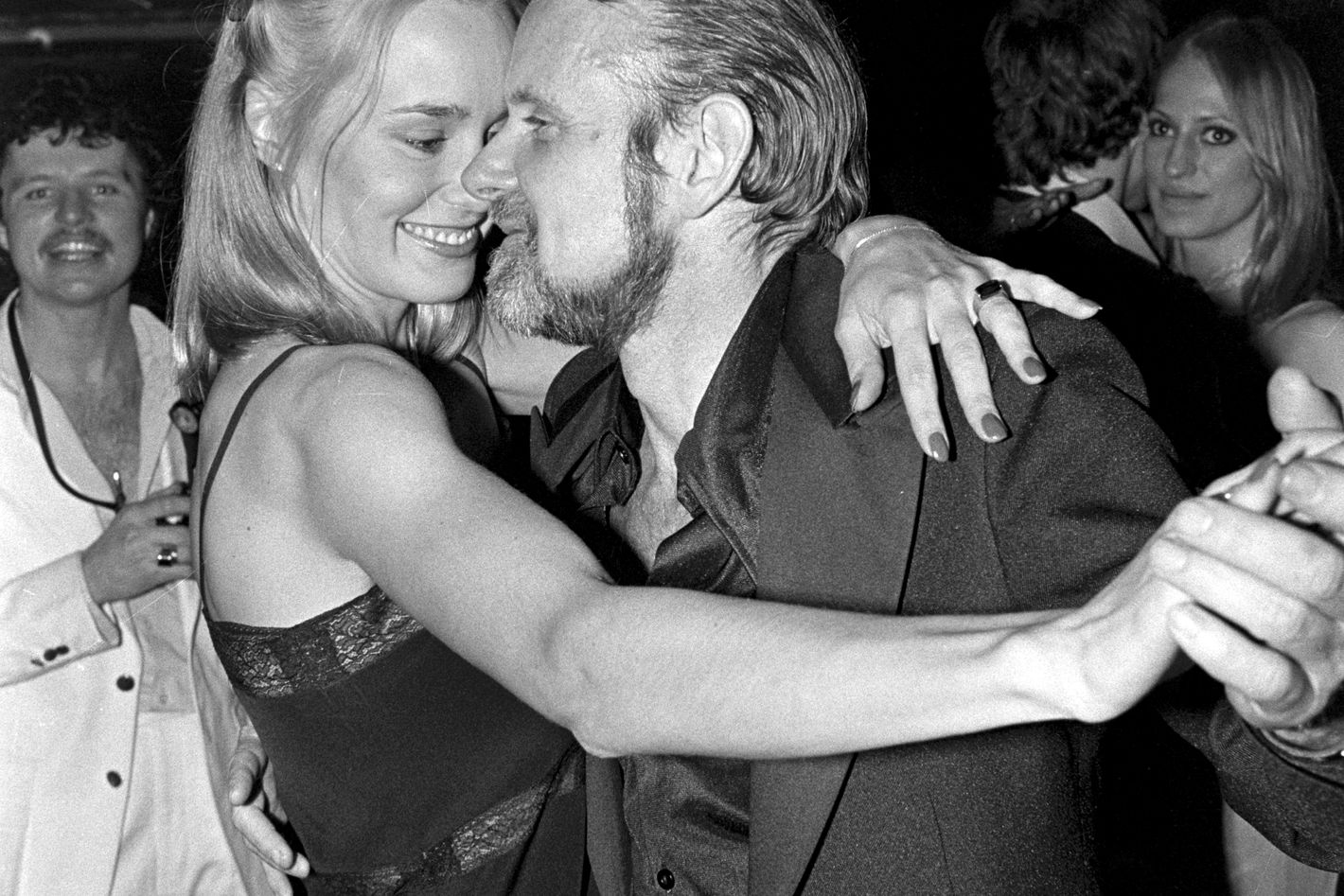
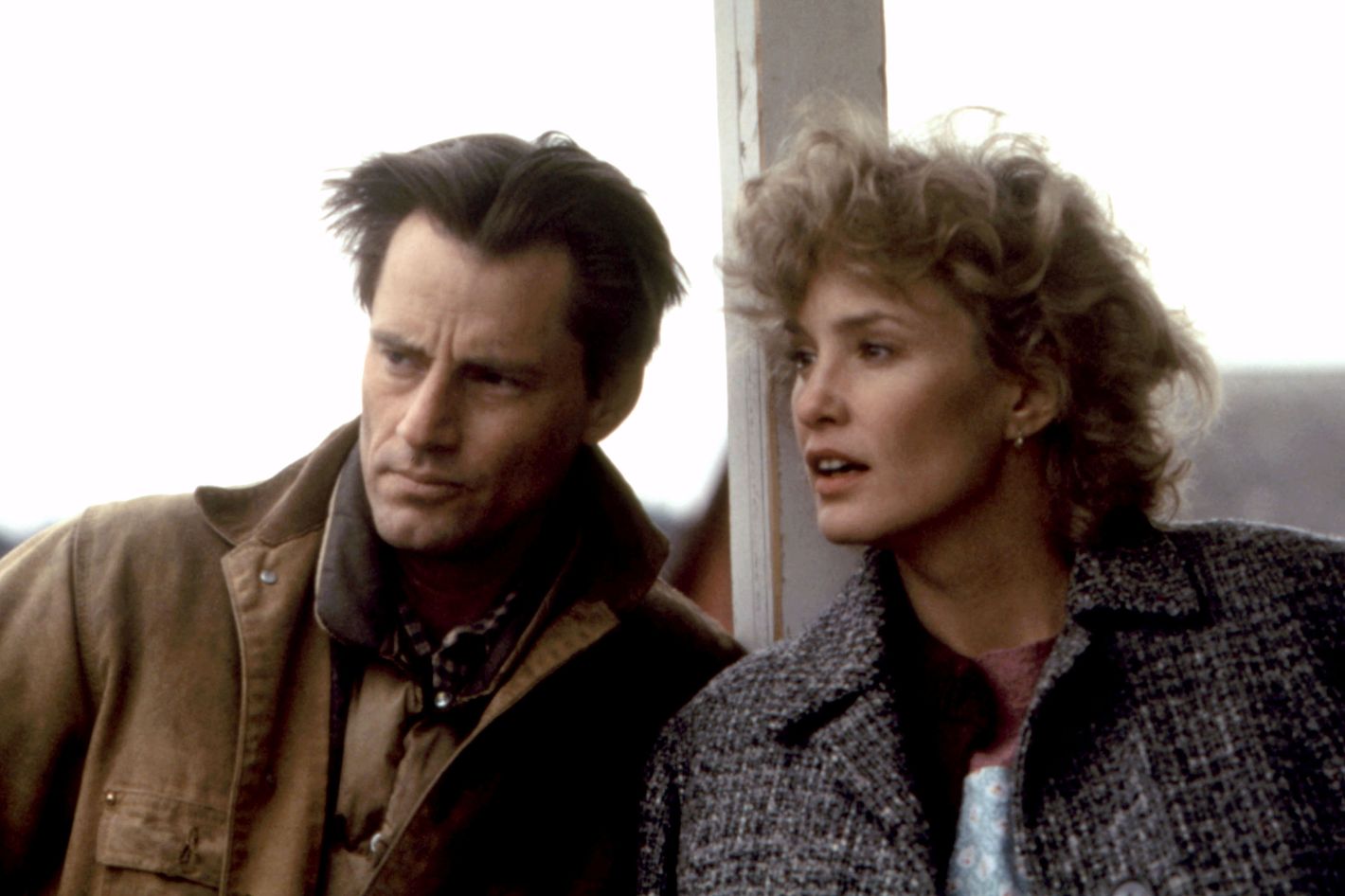
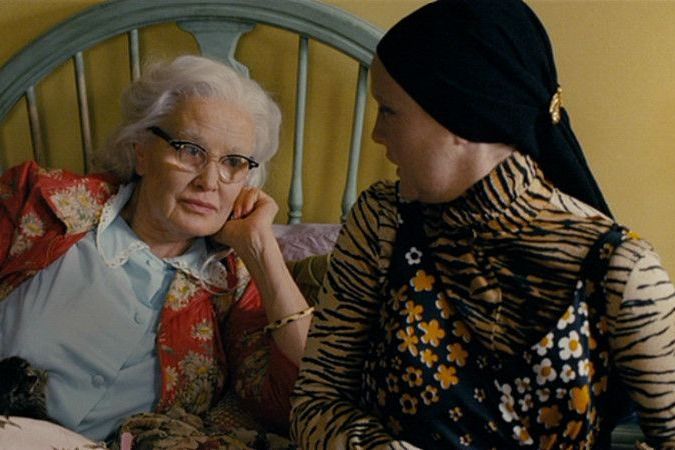
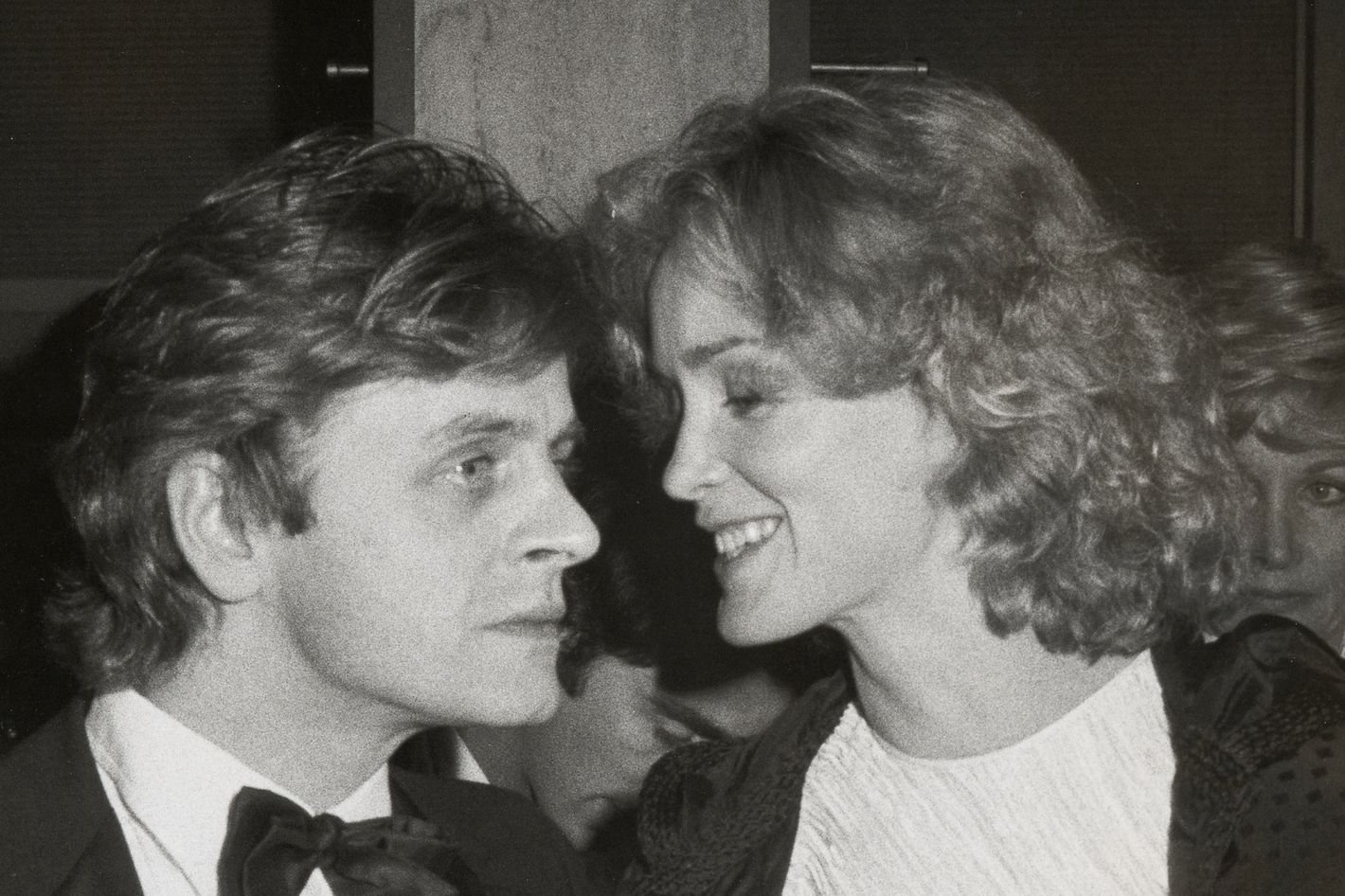
What sustains you, drives you forward?
Coffee. Sometimes that’s the only thing that gets me up. And family, I guess, more than anything. That has always been the case. Motherhood’s big. That’s why this play is fascinating.
I wrote down one of your character’s lines from a draft of Mother Play: “You are twice the man your father was. You, my son, have my blood. You have my balls. Fear nothing. Crush the invaders. Kill, kill, kill.” I thought, Yeah, this is a Jessica Lange part.
I hope I can deliver that properly! I don’t know. But it’s a wonderful play. I think it’s going to be a great challenge. And it’s heartbreaking.
In what way?
That idea that there can be a decision — a wrong decision that comes out of some kind of emotion or misinformation, some misalignment of the stars — and suddenly your life takes a turn and it’s never the same and it’s never right.
Story of my life.
Probably most people’s. And then, in this play, there’s the loss and the haunting and the regret.
You’re making me think about your character Carly Marshall in Blue Sky, a profound film that gave me insight into my own mother, who was troubled like she was.
Rama Laurie Stagner wrote the story about her mother and father. I saw that character as very damaged. I wondered, What would her childhood have been like? What happened to her that informed the way she is in the world? That was a great part to play. And I loved working with Tommy Lee Jones. Tommy and I had done a film version of a Cat on a Hot Tin Roof. Should have been a great production and it wasn’t, but we had Kim Stanley and Rip Torn. A lot of people had trouble working with Tommy Lee, but I never did. We had a great unspoken rapport, a way of our approach, which was in both our cases very private. Nothing was ever discussed or talked about, but that something unspoken made the work thrilling always. And I loved working with Tony Richardson. He never suffered fools. He wasn’t alive when the film came out. It sat on a shelf for three years or something.
Were you worried it would never see the light of day?
Sure. I feel the same way about the film we did of Long Day’s Journey Into Night. Who knows if it will ever come out? It’s in some weird limbo. It’s not finished.
Oh, is it a rights issue? A money issue?
I don’t know what it is, exactly. Money? Differences of opinion?
It’s stunning to me that so much effort and time can be invested in creating a film and have it disappear. There have been entire recent movies that were deleted by Warner Bros. Discovery so the company could claim a tax write-off.
There should be a law against it. We’re living in a corporate world, and it certainly has rolled over into the film industry. So much of the industry now is not about the creative process. I mean, obviously this is not across the board, but there are many instances where I feel like the artistic impulse is overwhelmed by the corporate profit motive. You look at some of the best films of the past year — what do they have in common? They’re not from America. My favorite was Anatomy of a Fall. How often do we get to see a film like that, where the ambiguity of things is never sewn up?
Not too long after you won the Oscar for Blue Sky, you started doing TV. It’s not a big deal now, but it was back then. Did any people in your corner advise against it?
I never understood why it had to be one or the other. I was offered a few really great things for television; whether they turned out great is another matter. But there was the Willa Cather adaptation O Pioneers! and then, of course, A Streetcar Named Desire, which I would’ve done in any medium at any time. Deciding to do TV was similar to my decision to do stagework. A lot of film actors weren’t onstage at the time, either. I suppose some people might have said, “Oh, you shouldn’t do TV,” but if I did get that advice, I never paid attention to it. I have rarely paid attention to advice over the years, for better or worse.
You’ve talked very frankly and openly about depression. How have you been able to channel that into your work in a productive way, rather than letting it paralyze you?
As an actor, you’re always drawing on personal emotion in the Actors Studio sense: memory or emotional recall. And a lot of the characters I’ve played have a dark side. That sadness that you have in life, that sorrow, that anger — whatever it is you’re carrying with you — that’s part of the instrument. That’s what you’re drawing from. I wish I were a happier person. I wish I didn’t have bouts of depression, but I do.
Is that why you love Blanche DuBois so much?
Yes. That sense of her tremendous vulnerability and the madness that’s right below the surface. Obviously, Blanche was close to Tennessee Williams. I think she’s probably the best character he ever wrote. You think about her young husband, who killed himself because of what she said to him. How do you live with that? How do you live with that kind of remorse or guilt or loss? Even the last line, where she takes the doctor’s arm and talks about the kindness of strangers: There’s just something so lyrical and poetic about that character. It seems to me that she’s one of the most beautifully written characters in American theater along with Mary Tyrone in Long Day’s Journey Into Night. They’re both dealing with remorse and loss and sorrow. There’s that surviving, that desire to make things — Oh God, I don’t even know if I can explain it! To find the reason to keep going.
Mother Play begins previews April 2 at the Hayes Theater.
Production Credits
Photographs by Mark Seliger
,
Styling by Jessica Roberts Dior Blouse at dior.com
,
Hair by Peter Gray using Okay Agri Cosmetics for Home Agency
,
Makeup by Fulvia Farolfi for Chanel
,
Dior Blouse at dior.com
More From This Theater Season
- How to Write a Fake Rock Song
- The Weird, Wide-Eyed, Weepy, and Wild Voices on Broadway
- Amy Herzog and Sam Gold Are Just a Couple of Ibsen Lovers
Matt Zoller Seitz , 2024-02-28 12:00:31
Source link
